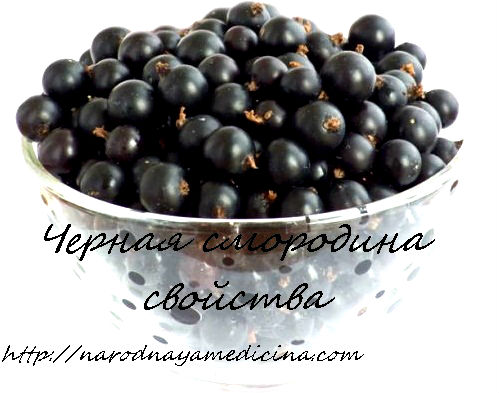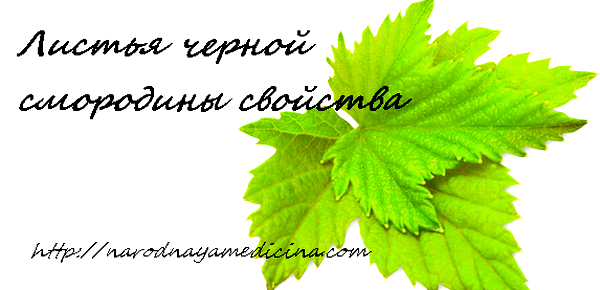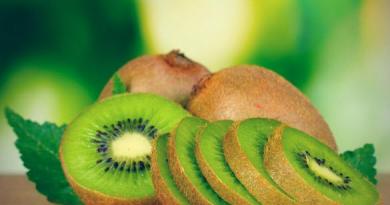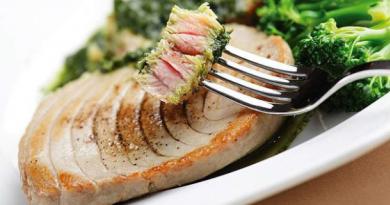Today I want to talk about blackcurrant berries. Currant berries are not only tasty, but also extremely healthy. Compote, jam, jam are prepared from them, they are frozen, dried. But, it is better to use berries fresh, in season. And in winter it is not only a wonderful delicacy, but also a medicine. Since blackcurrant can be used to treat certain diseases. All this can be easily explained by the rich composition of blackcurrant. Fresh currant berries and juice are an indispensable source of vitamins and microelements.
For therapeutic purposes, you can use currant berries and leaves, which contain vitamin C, phytoncides, magnesium, manganese, sulfur.
I love eating berries in the summer. In addition to blackcurrant, I love raspberries. You can read more about the benefits of raspberries in the article "". Today, in more detail, let's talk about the properties of blackcurrant.
Blackcurrant calories. Compound.
Blackcurrant contains 62 kcal per 100 grams. Currant berries are considered a low-calorie product, but due to their sugar content, it is not advisable to consume a lot of berries for overweight people.
- Vitamins in berries: A, E, C, K, D, P, B1, B2, B6, B9
- Macro- and microelements: iron, magnesium, manganese, copper, lead, sulfur, potassium, phosphorus, etc.
- Essential oil
- Tannins
- Pectins
- Citric, malic and other acids
- Sahara
To provide the daily requirement of the body with vitamin C, it is enough to eat 15 grams of blackcurrant berries per day. Moreover, ripe fruits contain a very high content of vitamin C. And since vitamin C in currants is practically not destroyed by freezing, berries can be consumed all year round as a source of this vitamin.

Black currant. Beneficial features.
- Black currant has general strengthening properties. Currant berries can be used to strengthen the immune system.
- Blackcurrant has restorative properties. It is useful for people who undergo surgery, colds or viral diseases, to restore strength, as a vitamin remedy.
- Vitamin C contained in blackcurrant is a natural antioxidant and is extremely important for the normal functioning of our body.
- Due to the presence of iron in blackcurrant berries, blackcurrant can be used for anemia, to increase hemoglobin in the blood, in complex therapy.
- Blackcurrant berries are used as a diaphoretic for colds, at high temperatures. They drink tea from blackcurrant berries, compote.
- Blackcurrant is an excellent hematopoietic and blood-purifying agent.
- Blackcurrant has a mild diuretic effect.
- With diarrhea, it is better to use a decoction of dried blackcurrant berries.
- Vitamin P contained in blackcurrant berries has a beneficial effect on the condition of blood vessels, strengthening them.
- Pectins remove cholesterol from the body, cleanse blood vessels. They absorb and remove toxins from the body.
Compote, jam, jam are prepared from blackcurrant berries, berries are added to pastries. Berries are dried and frozen. We usually freeze blackcurrant berries in the freezer. In winter, we add it to pastries, to tea, to oatmeal.
How to freeze blackcurrant?
Previously, blackcurrant jam or jam was mainly prepared. Now you can store blackcurrant berries in the freezer. I usually buy large whole currants. I sort currant berries from twigs, leaves. I remove damaged berries, if they come across.
Then the blackcurrant berries should be washed and dried on a paper towel. We lay out the berries in a thin layer on a plate, for example, and in the freezer. And then I pack the berries in bags. Now special bags with a clasp are sold in which you can store frozen foods in the freezer. Vitamins are preserved in frozen blackcurrant berries.
How to choose blackcurrant?
If you grow blackcurrants in your garden, then this is wonderful. You can always enjoy delicious and fragrant currant berries.
If you buy currants on the market, then you need to choose currants in appearance, the berries must be whole, without rot and damage. The smell of berries should not be "musty". Such a smell indicates that the blackcurrant has already begun to deteriorate. I usually taste berries and take sweet and sour and fragrant berries.
Black currant leaves. Medicinal properties.
Currant leaves can be added to tea, get a fragrant and vitamin drink. The leaves of black currant have general strengthening medicinal properties. Leaves contain essential oils, tannins, vitamins, phytoncides.

- And vitamin C, in the leaves of black currant, contains even more than in berries.
- Apply blackcurrant leaves as an anti-inflammatory agent.
- The leaves are diuretic and purifying.
- Blackcurrant leaves have antiseptic and tonic properties.
- An infusion of black currant leaves removes excess uric acid from the body.
- An infusion of currant leaves is a mild laxative and diaphoretic.
- A decoction or infusion of blackcurrant leaves is an excellent remedy for diseases of the kidneys, bladder, and edema.
- For coughs, colds, high fever, this is an excellent diaphoretic.
- Blackcurrant leaves have disinfectant properties.
- Regular intake of infusion or decoction of blackcurrant leaves helps to destroy pathogenic microorganisms in the digestive tract.
How to prepare blackcurrant leaves for the winter for tea?
The time of harvesting leaves, for making tea and infusion, is the period after flowering until fruiting. As a rule, this time falls on June. Tear off only the middle leaves, leaving the top and bottom. Leaves are torn off in dry weather, but only whole leaves, without damage and fungus. Dry the leaves on paper or on a cloth in the shade. Lay out the leaves in a thin layer. Dry to the "brittleness" of the sheet. Store the leaves in a dry place in a cotton bag or hermetically sealed jars.
Berries of blackcurrant. Treatment.
Many people know how to apply and how to be treated with blackcurrant berries. If you have your own proven recipes, then share them with me in the comments below. I will be very grateful to you. And I will share my recipes, which I used myself.
1. Blackcurrant for colds, SARS, high fever. Due to the content of vitamin C in blackcurrant, tea or an infusion of blackcurrant berries and leaves helps to quickly cope with colds and.
To prepare the infusion, a spoonful of blackcurrant berries is poured with a glass of boiling water, wrapped in a towel and insisted for about half an hour. You can drink such a drink with honey.
To prepare tea from blackcurrant leaves, you need to take a tablespoon of crushed leaves, pour boiling water over them, then add them to the teapot, pour two cups of boiling water. Leave to infuse for about 20 minutes. We filter the tea. You can drink this tea with honey or sugar.
2. Tea to strengthen the immune system, with a breakdown, beriberi. To strengthen the immune system, it is better to prepare tea using not only currant leaves, but also raspberry leaves, strawberry leaves, rose hips. I usually take a tablespoon of rosehip leaves and berries. I fill everything with boiling water and insist in a thermos. I insist 4 hours, filter and drink with honey.
With beriberi and to strengthen the immune system, you can not only drink blackcurrant tea, but also tea from viburnum, raspberries, cranberries. You can alternate the intake of these teas.
3. Blackcurrant to cleanse the blood of toxins. This method of blood purification was recommended to me by a nurse friend. When I had skin rashes, I ended up with drug intoxication. So, my friend advised me to drink an infusion of blackcurrant berries for 5-7 days. A glass of berries in three liters of water, boil for 3 minutes, leave for about an hour. Here is such a "compote" you need to drink three liters a day. As I found out later, black currant removes toxins, toxins, cholesterol from the body and such dangerous substances as mercury and cobalt. It also cleanses our body and blood from toxins and toxins.
4. Blackcurrant for sore throat. Blackcurrant can be used in combination with other remedies for the treatment of the throat. Blackcurrant juice diluted with warm boiled water can be used to gargle. You can take blackcurrant with honey by mixing berries with natural honey in a 1:1 ratio. Eat a spoon several times a day.
Berries of blackcurrant. Contraindications.
Blackcurrant is carefully introduced into the diet of babies. Since berries can cause allergies and skin rashes. You need to try a few berries, and then look at the reaction.
- Blackcurrant berries are contraindicated in case of allergies, with individual intolerance.
- Blackcurrant berries are contraindicated in hepatitis.
- Blackcurrant berries are contraindicated in case of increased acidity of gastric juice, with gastric and duodenal ulcers, and with gastritis.
- Berries are contraindicated in thrombophlebitis.
- Long-term and unlimited consumption of blackcurrant can lead to increased blood clotting.
During pregnancy and lactation, it is better to consult a doctor about the use of blackcurrant berries.




